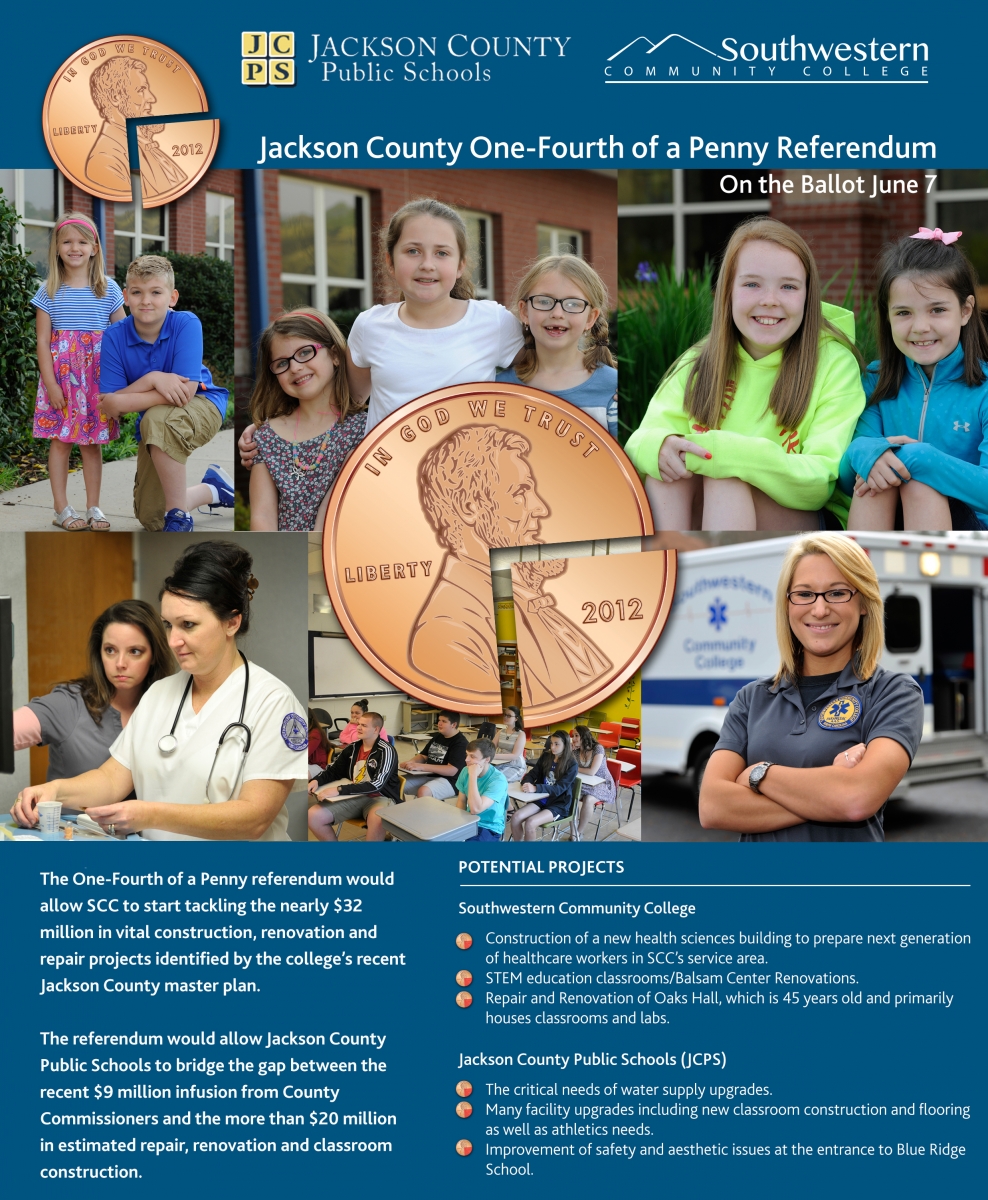 |
| Click on image above to view informative brochure |
| Dr. Mitch Fischer, dean of health sciences at SCC, stands inside the crowded nursing lab inside SCC’s Balsam Center that was built in 1987 to accommodate four health sciences programs. SCC now houses 14 health sciences programs in that building. |
A fraction of a penny is making an enormous difference in allowing Southwestern Community College and Jackson County Public Schools to address their major infrastructure needs for the foreseeable future.
The one-fourth of a penny referendum passed by Jackson County voters on June 7, 2016 is providing capital to let SCC begin tackling the nearly $32 million in construction, renovation and repair projects identified by the college’s recent Jackson County master plan.
The provision enjoyed bipartisan support from all who sat on the Jackson County Board of Commissioners at the tme. Each pledged to put all revenue generated by the referendum toward education in Jackson County. The measure does not apply to unprepared food or gasoline.
“SCC and the public schools have critical needs due to aging buildings and a growing population,” said Brian McMahan, chairman of the Jackson County Board of Commissioners, in 2016. “This referendum represents the most efficient way for us to help address our county’s essential education needs by allowing everyone – even those who visit Jackson County – to contribute without raising property taxes on our citizens. Even though it’s a very tiny tax increase, it will generate roughly $1.2 million annually that will stay right here and support education in Jackson County.”
Among the top priorities in SCC’s master plan is a new health sciences building, aimed at preparing the next generation of healthcare workers in the college’s service area.
| SCC nursing students work on an assignment inside SCC’s Balsam Center that was built in 1987 to accommodate four health sciences programs. SCC now houses 14 health sciences programs in that building. |
In 2016, SCC had to turn down 563 health sciences applicants from their desired program of study due to a lack of training space and resources. SCC officials estimate they could potentially accept 100 more nursing students within six years of the new building’s completion to help meet what the N.C. Department of Commerce projects will be a 31.9 percent increase in more nurses statewide by 2022.
“The Balsam Center was built in 1987 to accommodate four health sciences programs,” said Dr. Don Tomas, SCC’s president. “We now have 14 health sciences programs in that same building. Our faculty and staff are doing an amazing job with the space we have, but we desperately need more room in order to accommodate the growth of our college and our region.”
Other potential projects that the measure could fund at SCC are renovation of STEM (Science, Technology, Engineering, Math) education and health sciences classrooms and labs in the Balsam Center as well as repair and renovation of Oaks Hall, which is 45 years old and primarily houses classrooms and labs.
For the county’s public schools, a critical needs priority capital plan and long-range master plan has identified a number of potential projects including roof repair, HVAC system replacements and water supply upgrades.
The schools’ long-range plan includes a number of facility upgrades including: softball/baseball field enhancements with lighting at Smoky Mountain High, a new track at Smoky Mountain High and improvements of safety and aesthetic issues at the entrance to Blue Ridge School.
 |
| An architect’s rendering of what SCC’s possible new health sciences building will look like. |
“We are grateful to the Jackson County Commissioners for working on solutions to fund our critical needs,” said Dr. Mike Murray, then-superintendent of Jackson County Public Schools. “We are excited about the opportunity to bring about even more progress through this referendum.”

